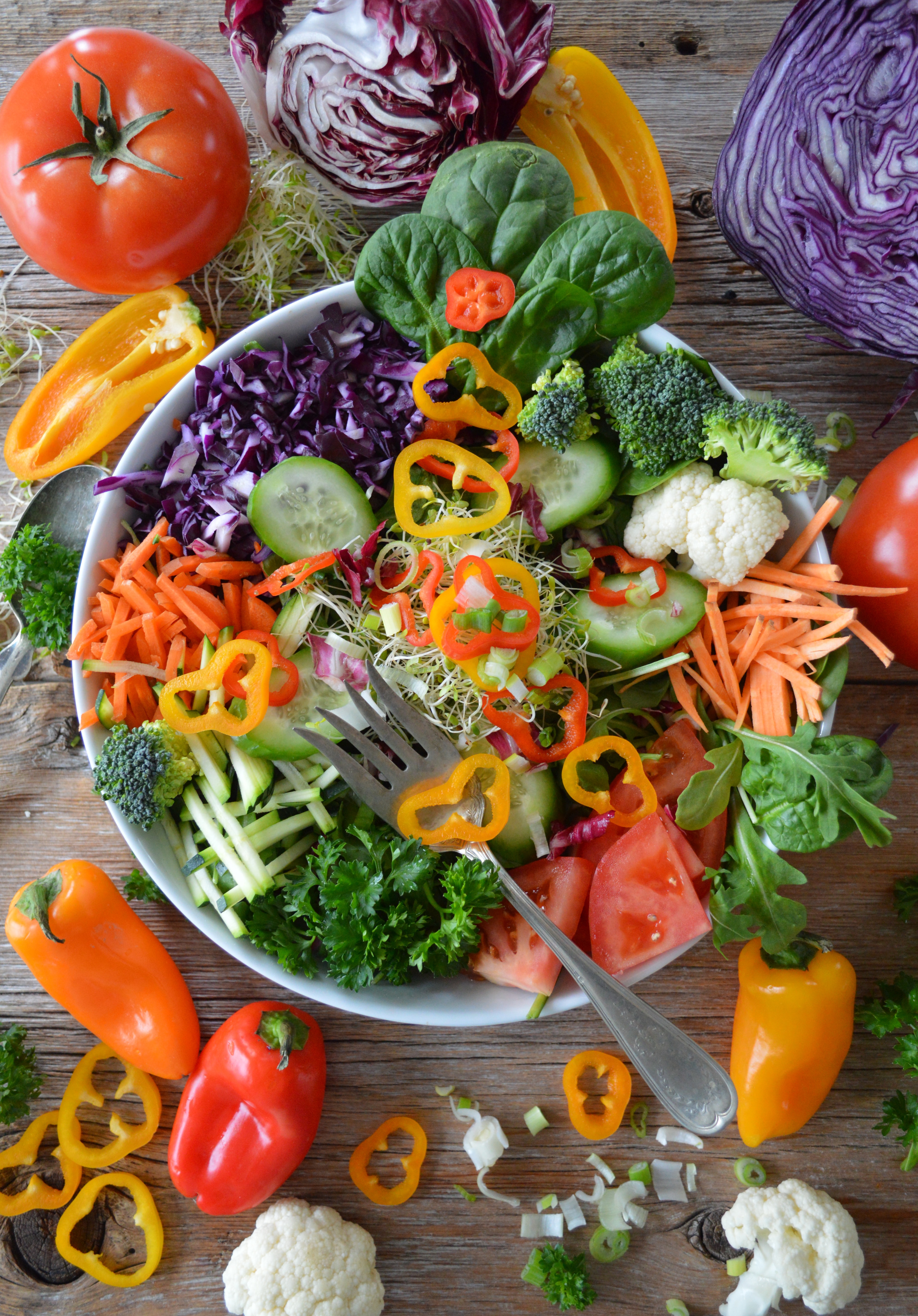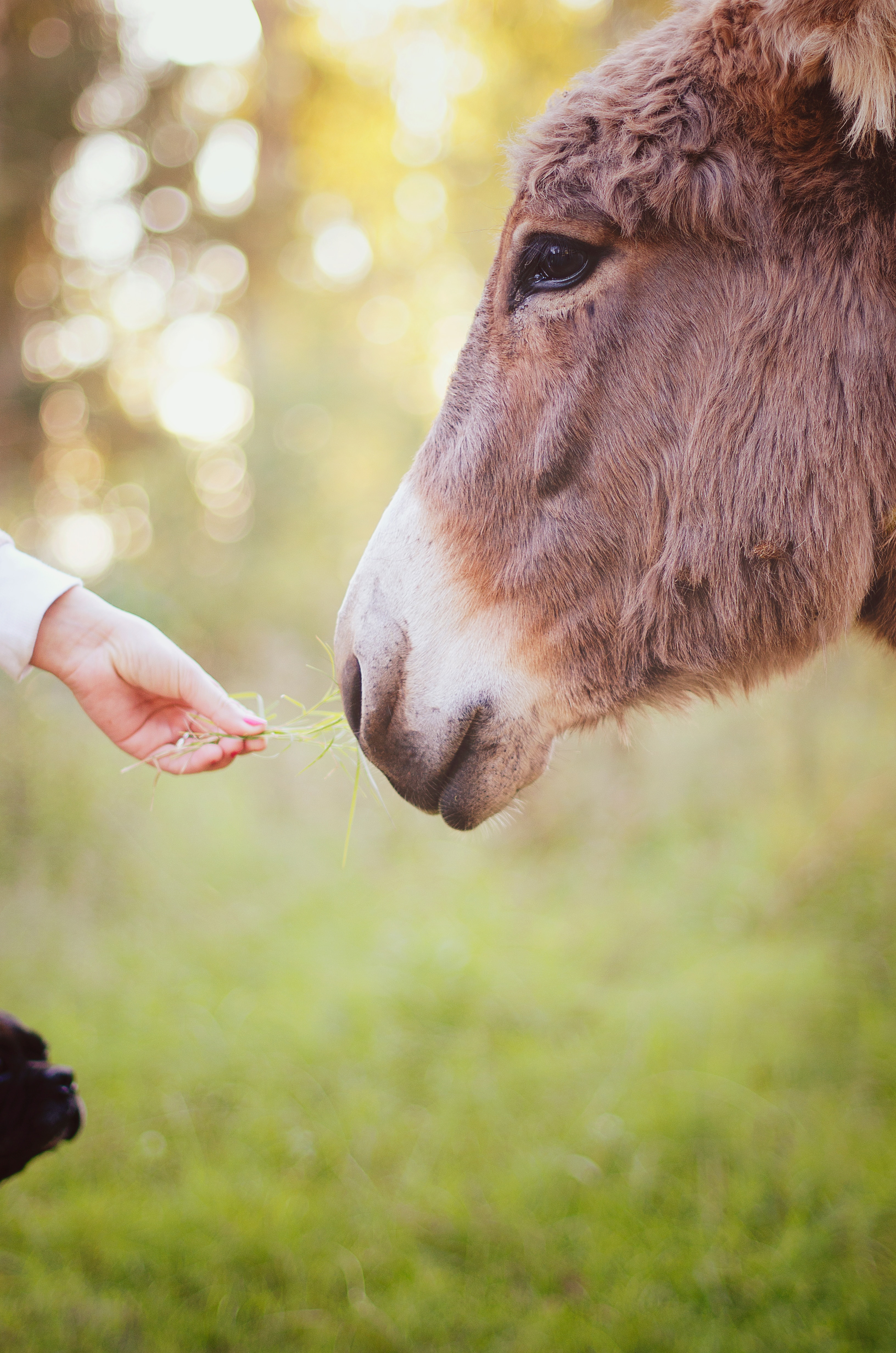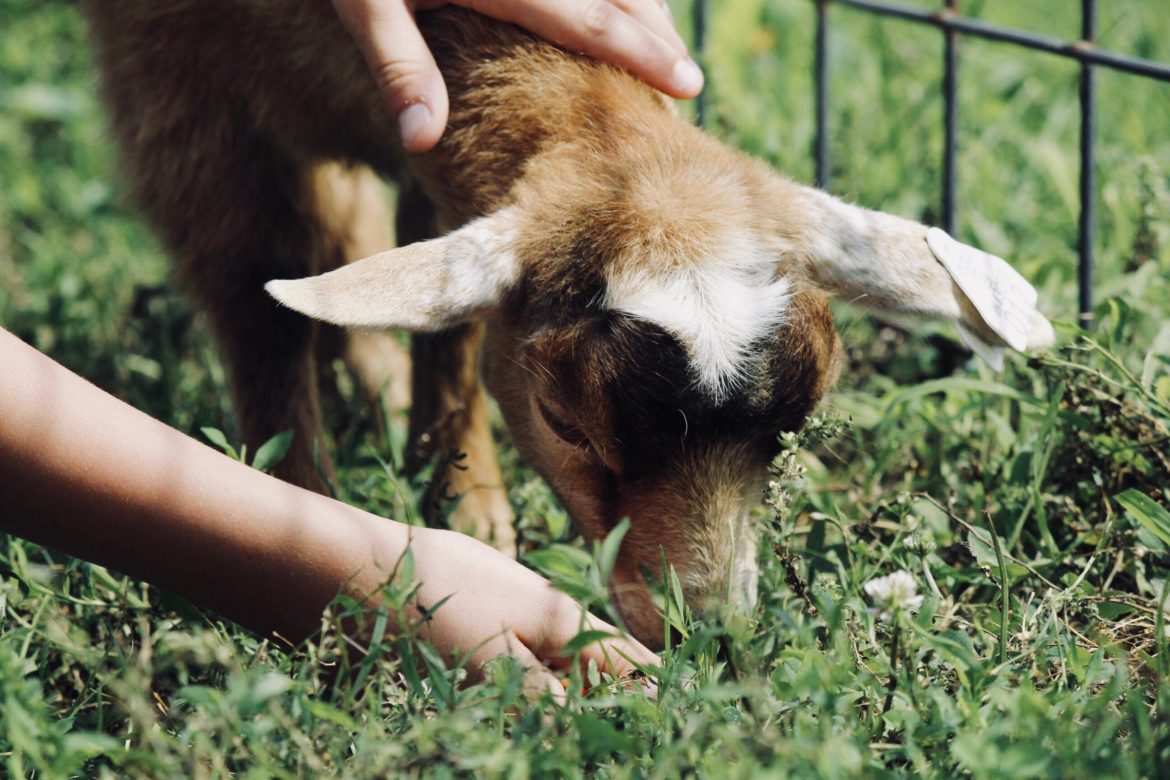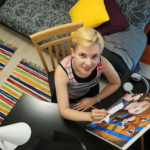The Revd Janey Hiller, an ordained Anglican minister, recounts her journey towards veganism and how studying Christian perspectives on animals at theological college proved to be a life changing experience.
Having a dietary preference that deviates from a norm provokes questions; often revealing common assumptions about vegans and plant-based diets. The most common question I get asked is: ‘Where do you get your protein from?’ The assumption being that only by eating animals can a person achieve a nutritionally complete diet. Next up, are questions related to why vegans would want to eat plant-based foods that mimic meat; assuming vegans object to the texture or taste of meat, more than its substance.
Both questions (and underlying assumptions) are worthy of much unpacking. But the question in focus here is: ‘Why are you vegan?’ In my experience, this gets asked much less. If the assumption here is that the primary reason for being vegan is animal welfare, then it makes sense for flesh-eaters to not ask the question and risk being confronted with the cruel realities behind their choice!
 However, I confess, animal welfare was not my primary reason for being vegan. At least not initially.
However, I confess, animal welfare was not my primary reason for being vegan. At least not initially.
The publication in 2015 of the rich tapestry of thought that is Laudato Si, by Pope Francis, stirred me awake to the idea of the interconnectedness within creation. Subtitled, ‘On care for our common home’, the letter calls for humanity to live out an ‘integral ecology’ in which we can no longer separate facets of human existence into economy, nature, society and so on. Rather we need to recognise that humans are integral to nature; part of God’s created order. How we live not only impacts but is impacted upon by all creation. To live well, therefore, means to live in the knowledge that there is an ‘inseparable bond… between concern for nature, justice for the poor, commitment to society, and interior peace.’ (para.10)
Later that year, my journey towards veganism lunged forward in response to something rather cruder. Asger Juhl, a Danish radio presenter killed a baby rabbit with a bicycle pump live on air. His intention was ‘to expose people’s hypocrisy in relation to animals.’ It wasn’t so much the incident that grabbed my attention, rather the backlash to it. Reactions ranged from the more moderate petitions for Juhl to be fired from his job to others wishing him an equally gruesome death. In the course of the ensuing debates, I arrived at the conclusion that veganism was my most ethical and responsible course of action.
I signed up for the Vegan Society’s 30-day vegan pledge. In all honesty, whilst committed to the thirty days, I left my options open about anything beyond that! Daily emails would arrive in my inbox to help me stay on course – day fourteen nailed it for me. The email outlined the impacts of ‘Western’ diets; principally the disproportionately negative impact on the global poor of an ecological crisis brought about in part by industrialised meat and dairy production and over-consumption. This forged in me a profound connection between a plant-based diet and human justice which, once seen, could not be unseen.
For veganism to ‘stick’, I felt it had to be rooted in human justice. I had (and still have) no appetite to engage in alarmist activism which, I believe, is potentially counter-productive. My ‘jury’ was out on the apparent morphing of evolutionary biology’s teaching that people are animals, into ‘animals are people.’ This, along with accompanying slogans such as ‘people don’t eat other people’ and ‘a rat is a pig is a dog is a boy’ convey the idea that the lives of humans and non-human animals have moral equivalence, and pose a dramatic reinstatement of the value of life that challenges inherited Judeo-Christian views about human distinctiveness in God’s creation.
That animal welfare didn’t feature large in my eventual decision to go vegan, aroused the curiosity of my vegan friends who would often ask me: ‘Why do you think humans are more important than animals’? My position was under fire and no answer I gave seemed credible to people who did not share my Christian faith. Saying ‘because I believe humans have a special place in God’s creation’, does not mean much when people don’t believe in a creator. I wanted to be able to answer this question better; to find a theology for my veganism that was more multi-dimensional.
 During training for ordination, I was given the task of presenting a review of Animal Theology by Andrew Linzey. Responding to such issues as our greater awareness and understanding of animal sentience; changing technological and consumer relationships between people and animals; and a growing body of ethics focused on historically excluded groups in Christian theology and practise, the book offered me compelling arguments which directly and sensitively challenged deep-seated theological perspectives on human culture, traditions and power. Particularly, Linzey’s thinking about what it means for humans to be made in the image of God reshaped my thinking about the primacy of humanity in creation. For him, the uniqueness of humans in creation takes the shape of a unique responsibility – to ‘live in a self-sacrificial, loving and costly relationship with the natural world.’ (Linzey, p108). It turned my head – and my heart – towards a perspective where human justice and animal justice are of a piece.
During training for ordination, I was given the task of presenting a review of Animal Theology by Andrew Linzey. Responding to such issues as our greater awareness and understanding of animal sentience; changing technological and consumer relationships between people and animals; and a growing body of ethics focused on historically excluded groups in Christian theology and practise, the book offered me compelling arguments which directly and sensitively challenged deep-seated theological perspectives on human culture, traditions and power. Particularly, Linzey’s thinking about what it means for humans to be made in the image of God reshaped my thinking about the primacy of humanity in creation. For him, the uniqueness of humans in creation takes the shape of a unique responsibility – to ‘live in a self-sacrificial, loving and costly relationship with the natural world.’ (Linzey, p108). It turned my head – and my heart – towards a perspective where human justice and animal justice are of a piece.
As Pope Francis so eloquently expresses in Laudato Si: ‘We have only one heart, and the same wretchedness which leads us to mistreat an animal will not be long in showing itself in our relationships with other people. Every act of cruelty towards any creature is contrary to human dignity… Everything is related, and… woven together by the love God has for each of his creatures and which also unites us in fond affection with brother sun, sister moon, brother river and mother earth.’
 The Revd Janey Hiller is an Ordained Minister and Pioneer Activist in the Anglican Diocese of Bristol.
The Revd Janey Hiller is an Ordained Minister and Pioneer Activist in the Anglican Diocese of Bristol.
References:
Andrew Linzey, Animal Theology (London: SCM Press, 1994)
Pope Francis, Laudato Si, Encyclical Letter on care for our common home, (Vatican Publishing House, 2015)




